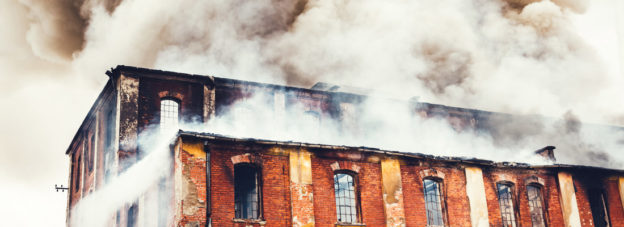In Penn-America Insurance Company v. Bay State Gas Company, 96 Mass. App. Ct. 757 (2019), the Appeals Court of Massachusetts considered whether the plaintiff’s claims against the defendant, arising from an alleged defect in the defendant’s natural gas line, were time-barred by the six-year statute of repose for improvements to real property. The Appeals Court held that the statute of repose did not apply to the plaintiff’s claims, which were related to the defendant’s alleged failure to maintain its property. Thus, in Massachusetts, the statute of repose does not apply if the plaintiff’s claim is rooted in the failure to maintain an improvement, rather than negligent design or construction of the improvement.
In 1996, the defendant, Bay State Gas Company, doing business as Columbia Gas of Massachusetts (Columbia Gas), installed a natural gas riser pipe and meter for a building that the plaintiff, Penn-America Insurance Company (Penn-America), insured. The riser pipe came above ground near the subject building, at which point a gas meter was connected to the riser. Neither the riser pipe nor the meter were secured to the building or otherwise supported. Discovery in the case revealed that Columbia Gas had inspected, repaired, and replaced equipment related to the gas service for the subject building, including replacing a service line in 1998. Discovery also revealed that the company responded to a gas leak in 2014. In February 2015, a natural gas fire ensued at the property. Evidence indicated that the weight of accumulated snow caused the gas meter fitting to break and leak gas. Penn-America brought this subrogation action against Columbia Gas on grounds that the utility company failed to properly maintain the gas line and meter over the years. Penn-America also contended that years after Columbia Gas installed the riser pipe and meter, federal and state regulations imposed a “continuing duty” onto gas utilities to inspect and maintain their service lines.
The Massachusetts statute of repose states that no tort claim arising out of any deficiency or neglect in the design, planning, construction or general administration of an improvement to real property shall be brought more than six years after either the opening of the improvement to use or substantial completion of the improvement, whichever occurs first. Columbia Gas filed a motion for summary judgment on grounds that the statute of repose barred Penn-America’s claim. Columbia Gas argued that any alleged failure to correct problems with its gas line related to the general administration of the original installation, and that the plaintiff’s claims were essentially regarding the original design and construction. Penn-America argued that its claims arose out of Columbia Gas’ continuing duty to maintain its own equipment, not the original design or construction. The lower court granted Columbia Gas’ motion, which prompted Penn-America to file an appeal.
The Appeals Court noted that the purpose of the statute of repose is to protect architects, engineers and contractors from claims long after a construction project is completed. The court found that the language of the statute contemplates three stages of construction: the design phase, the construction phase, and the general administration phase—all of which are part of the same continuous construction project. The court noted that the purpose of the general administration phase is to remedy design or construction problems which may emerge following construction. Here, the court found that, as Columbia Gas retained ownership of the gas line and provided continuous maintenance and repair over the years, Penn-America alleged negligent maintenance well beyond the general administration phase. As noted by the court, Penn-America claimed that Columbia Gas failed to install proper supports for the gas line pursuant to government regulations that took effect years after the installation of the gas service. Based on the court’s findings, it held that to the extent Penn-America’s tort claims related to Columbia Gas’ improper maintenance of the gas line, the statute of repose did not apply. Thus, the Appeals Court reversed the lower court’s ruling, breathing life back into Penn-America’s action.
This case establishes that in Massachusetts, a tort claim for failure to maintain an improvement is not protected by the statute of repose for improvements to real property. While this case is particularly relevant to instances were a designer and/or builder of an improvement retains ownership of those improvements, it may also apply to situations where a contractor does not have ownership but continues to provide maintenance and service on the improvement beyond the general administration phase of construction. Subrogation professionals should be mindful of Massachusetts’ “failure to maintain” distinction when assessing the application of the statute of repose to a claim.

